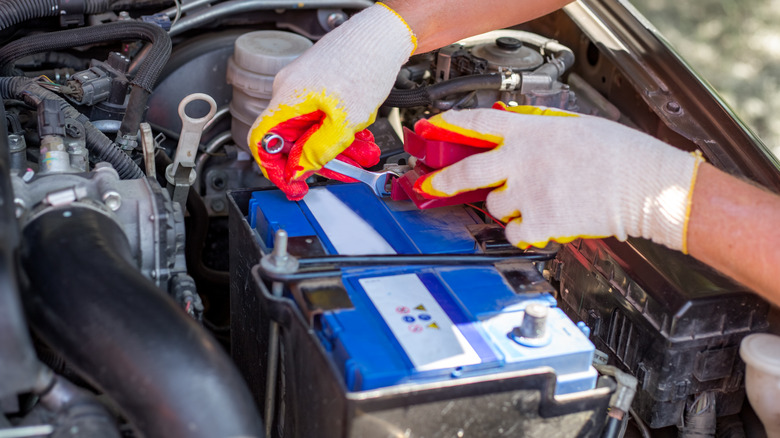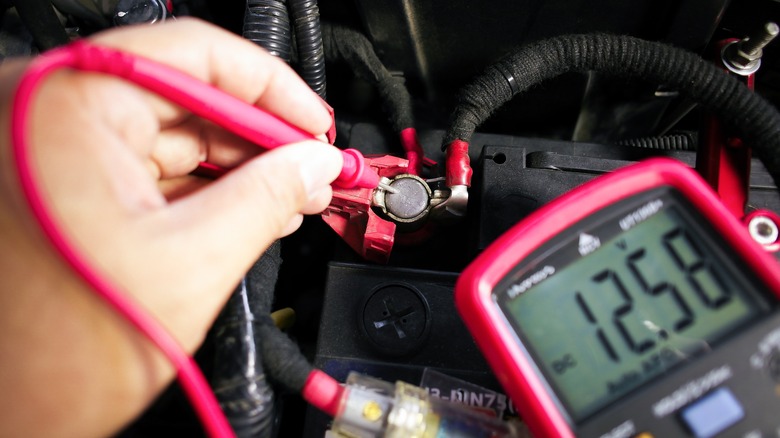Can Dead Car Batteries Be Recharged? How To Tell When It's Time For A Replacement
We may receive a commission on purchases made from links.
Car batteries are a consumable item and need replacing every few years after normal wear and tear. However, new batteries sometimes lose their charge for a variety of reasons, ranging from a faulty alternator or electrical system to lights being left on. Fortunately, you can recharge a dead car battery raher easily. But it's critical to understand why an otherwise good battery could fail at the most inopportune times.
When your 12-volt car battery dies or goes flat, a chemical process called "sulfation" is usually the culprit. All lead-acid and valve-regulated lead-acid batteries (VRLA or sealed maintenance-free car batteries) produce lead sulfate when discharging stores up power. The lead sulfate reverts to lead dioxide, sulfuric acid, or lead when the battery recharges via the vehicle alternator or an external power source.
However, insufficient recharging could turn the lead sulfate into sulfate crystals that cling to the plates inside the battery. When this happens, the battery capacity will deteriorate, eventually destroying it and rendering it obsolete when left unchecked. The sulfate deposits on the plates will lead to unnecessary expansion. This is why some battery casings bulge, often with the plates cracking in the process.
A sulfated car battery isn't always obvious. Symptoms are can include longer charging times, a lower recharging capacity, and poor battery efficiency. This all can lead to hard starting or a no-start condition. The good news is that a dead or sulfated car battery can be recharged or reconditioned using a multi-level 12V battery charger.
Recharge or replace? How to tell if a dead battery is worth reviving
There are telltale signs of whether a dead car battery is worth saving. The first is the physical condition of the battery casing. If there are cracks, bulges, fluid leaks, or irregularities in the plastic casing, the best answer is to responsibly dispose of the old battery and get a new one. (Recharging a leaking battery is dangerous and can, among other things, produce poisonous fumes.)
The next thing to do before attempting to recharge a dead battery is to check the voltage using a voltmeter. A standard 12-volt battery has six cells that each produce around 2.1 volts or 12.6 volts collectively. If the voltage falls below 10 volts, replacing the battery is better than attempting to recharge it. But if the voltage is between 10 and 12.6 volts, it may be worth reviving the battery.
Remember that the age of the battery is also worth considering. Most 12-volt car batteries typically last three to four years on average. However, frequent short trips, prolonged storage, and consistent exposure to extreme hot or cold weather could shorten its lifespan. Moreover, the all-weather performance of a reconditioned car battery could be inferior to that of a brand new battery, so keep this is mind before proceeding. It could be worth saving a six or seven-year-old car battery but old batteries with deteriorated plates won't have a similar lifespan as a newer unit.

